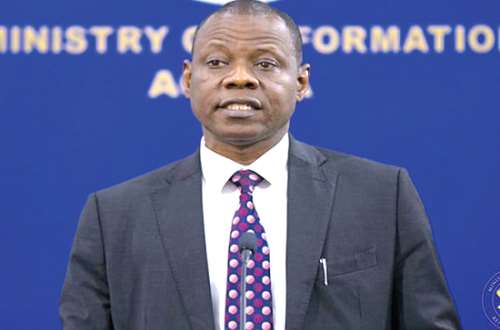The Ghana Health Service has said although the new coronavirus variant has not been detected in the country, it will move to tighten the enforcement of safety protocols during the Yuletide as a proactive strategy.
Director-General of the Ghana Health Service (GHS), Dr Patrick Kuma-Aboagye, said at a press conference on Sunday, November 28, 2021, that government and the relevant state agencies will tighten the enforcement of COVID-19 safety protocols to prevent a possible spike in the number of infections.
He disclosed that during the upcoming Christmas festivities, it would be required of all persons to provide proof of their vaccination before being allowed entry into parties and other mass gatherings.
READ ALSO: Covid: US joins EU in restricting flights from southern Africa over new coronavirus variant
He said available data suggest that there’s no evidence that the new variant, Omicron, can be transmitted through any new means, hence, the public must continue to observe the relevant COVID-19 safety protocols involving social distancing, the wearing of face masks and the washing of hands amongst others.
“Omicron. We have not identified one in Ghana. All people who have tested positive at the Airport are sequenced, their samples are sequenced. We also pick samples from our reference labs across the country, to do sequencing. Currently, they have a bunch of about 160 which they’re working on now, but there’s been no indication of Omnicron in Ghana. So all those messages flying around, it’s not true. There’s no case in Ghana”, Dr. Kuma-Aboagye at the press conference on Sunday.
He also revealed plans by his outfit to ramp up COVID-19 vaccinations in December in a country that is struggling with vaccine hesitancy.
The heavily mutated Omicron variant was detected in South Africa earlier this month and then reported to the World Health Organisation (WHO) last Wednesday.
The variant is responsible for most of the infections found in South Africa's most populated province, Gauteng, over the last two weeks, and is now present in all other provinces in the country.
On Monday, Japan became the latest country to reinstate tough border restrictions, banning all foreigners from entering the country from 30 November.
The EU and the U.S. have imposed travel restrictions on South Africa over the new variant, a move condemned by the southern African country.





